Igbo Cultures And Traditions
How Some Nollywood Producers Are Destroying The Image Of Igbo Culture And History – Biko Kwụsịnụ Ya
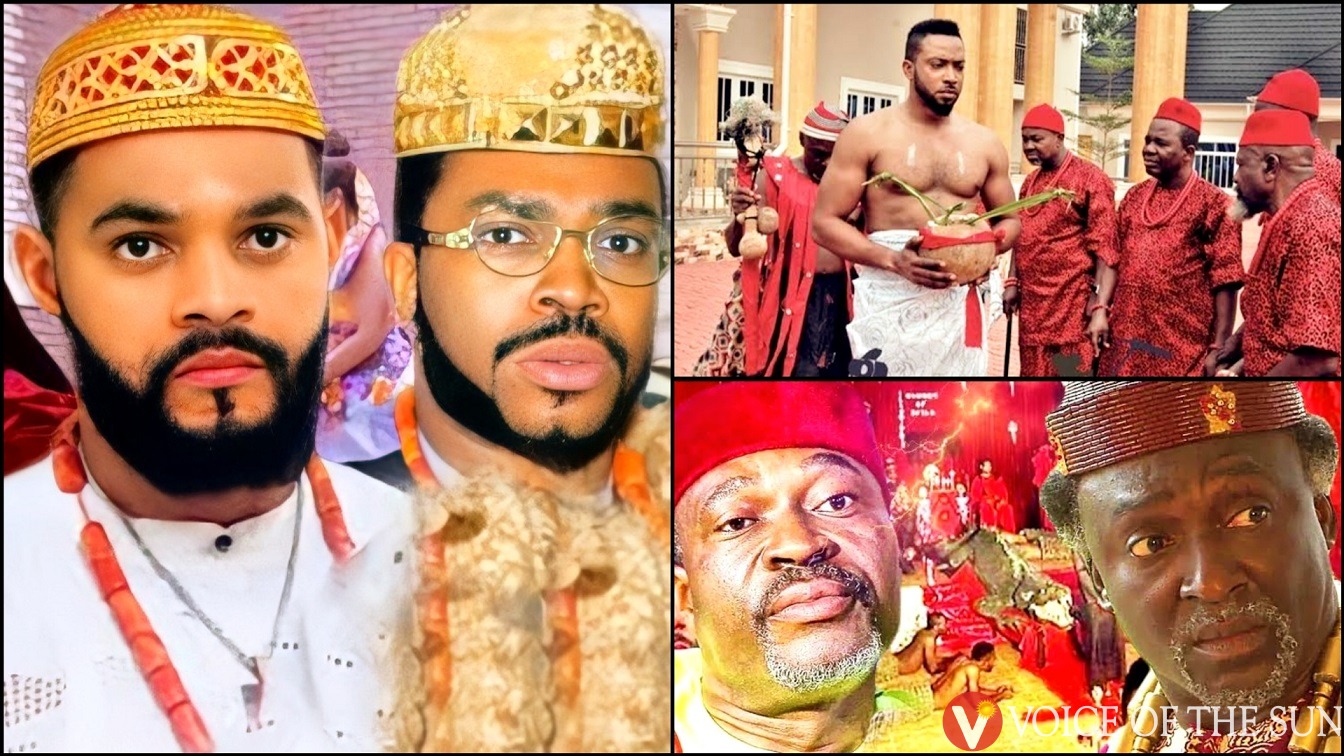
Nollywood producers, directors, executive producers, and actors, in an attempt to always have fresh content and make quick money, sell lies and unnecessary fiction about Ìgbò culture and history.
To be specific, the Ìgbò among them, have continued to bastardize our history and culture with their “Kingdom” and “The Gods are Angry” monotonous motion pictures.
Number one on this list is the negative and false portrayal of Ọdịnanị Ìgbò (as a form of spirituality, and organized religion). All they show the passionate viewers is a supposed native doctor tying red cloths, marking his eyes with nzu, and portraying the gods and deities of ani Ìgbò as bloodsucking entities, whose only concern is human sacrifice.
These producers do not care to learn or show the true, real and basic tenets of Ọdịnanị Ìgbò, such as: Chi, Agwu, Ndi ichie, Akwali omumu/Oda Omumu, Ogwugwu, Anyanwu, Agbala, Nso ani, Ikpu alu, and many more. These aspects of our spirituality as Ndi Ìgbò are not infused into many movies about Ìgbò culture, religion, and worldview, leaving the viewers to go away with false narratives that hurt us in the long run.
There is no real portrayal of who a complete Ìgbò DIBỊA is, showcasing the real way we practice our spirituality and connect to the divine. This, in the long run, paints our spirituality as dark, and our DIBỊAs as men and women connected to human-bloodsucking deities and forces of nature; now outsiders and the unconscious ones amongst us are left with the notion that we practice a backward, diabolic and evil religion, which should be feared.
Number two on the list is the constant need to have movies about blood money and rituals. They are neck-deep in the narrative that a man must have to sacrifice his mother, child, wife (or any other human being) for him to be financially successful. There are too many of these kinds of movies out there, and it now makes it seem as if there is no wealthy Ìgbò man in a society whose hands are not soiled in blood money or rituals. And this is wrong because Ndi Ìgbò are some of the most hardworking people you can find in the entire world. Ndi Ìgbò are hardworking and have attained success through hard work, in the formal and informal sectors of life. We have men and women who have succeeded through years and years of learning, implementation, and hard work.
We have billionaires, and millionaires, who have attained great heights, without soiling their hands. They are too numerous to mention.
Through the Ìgbò apprenticeship system, Igba boy/Imu ahia, we have seen young boys from poor backgrounds, taking to their master’s house, and after 5-8 years of servitude and learning, get settled, start their own business, and after a few years of toiling, saving and investing, become successful millionaires. There are hundreds of thousands of such stories scattered all over ani Ìgbò. And then after years of hard work, and such men are blessed in business, society now paints them as ritualists. Why? Because that is the common notion that has been planted subconsciously by a good number of Nollywood movies.
This is unfair to the hardworking Ìgbò man and woman.
We are begging Nollywood producers to please cut down on the money rituals narrative and focus more on the true stories of hard work mixed with the enterprising nature of Ndi Ìgbò (Ndi gboo). Let not the need for regular content make you relegate the true stories of Ndi Ìgbò to the corner while making blood money and rituals the mascot of our successes as Ndi Ìgbò.
Number three on this list is the production of movies that suggest that Ndi Ìgbò had/have kingdoms and kings, whose words and decrees are to be obeyed; kings who wield absolute and total power over their subjects, as you will find in other parts of the world. Meanwhile, it’s not true. Every day we are met with movies capturing fictitious recitations of “your lord, My Lord, Your Highness, My King, My Queen, My Prince, My Princess, Your majesty,’ among many other absurdities.
Asides from the few places where we had/have cultural, social, and priestly kinds of the central leadership in ani Ìgbò, I make bold to say that Ndi Ìgbò did not have kings, as it is being portrayed in Nollywood – kings who trample on or subdue the people.
Nri, for instance, has a priestly kind of king, whose throne is purely spiritual and cultural, and not political or autocratic. Some other examples are the Obi of Onicha, and Obi of Iselu-Ukwu (of the Ika Ìgbò, across the Niger), among a few others who had royal houses before the coming of the British.
It’s important to note that some of the so-called kings we have today in ani Ìgbò are descendants of warrant chiefs, installed by the British when they invaded and colonized ani Ìgbò. Some of those who were made warrant chiefs were not even among the Ozo titled men or leaders of various communities. They were chosen to help the British suppress Ndi Ìgbò. And after many decades, today, their children are now designated Igwe/Eze, kings of various towns in ani Ìgbò.
These so-called kings are basically under the employ of the government (state and Federal), and they have their staff-of-office assigned to them by the government. That is why you can see a sitting governor disrespect and dethrone a supposed monarch (king). These kings do not have absolute authority over how individuals chose to live their lives in ani Ìgbò. That is why we say that “Ìgbò enwe eze.” An Ìgbò man is republican – this is how we have been from time immemorial.
So, Nollywood is not telling the true history of Ìgbò leadership, when they over-flog the “My king, Your Highness” narrative in movies. And if they insist on continuing the narrative, they should try to focus on the monarchs and royal households we had before the British invasion of ani Ìgbò, bearing in mind that we do not have subjects in ani Ìgbò.
The three points mentioned above, are some of the issues we must address when it comes to the image of Ndi Ìgbò, that Nollywood portrays.
We must not forget to mention that the case is not entirely a sorry one. Some producers do a great job at portraying the real image of Ìgbò culture, spirituality, enterprising nature, and history. One of such movies is Ojukwu, produced by Mary Remy Njoku, of ROK. They did their best to portray the Ìgbò judicial system, spirituality, family circle, culture, and worldview. There are also many other movies like that, which do a great service to the Ìgbò Image. To producers who understand what needs to be done, we say Jisinu Ike.
Umu nnem, there are lots of stories to tell.
Where are the movies about the Ekumeku war that lasted for 31 years, where Ìgbò soldiers fought against British invaders and defended Ìgbò land?
Where are the movies of men such as Sir Louis Ojukwu, First Nigerian Billionaire, and A knight Of England?
Where are the movies of De Sam (Sam Mbakwe), the first democratic governor of Imo state and one of the best leaders Ndị Ìgbò ever had?
Where are the movies of Nnamdi Azikiwe, the great Zik of Africa?
Where are the movies of Chukwuemeka Odumegwu Ojukwu (Ikemba Nnewi), showcasing his life and defense of his motherland?
Where are the movies on literary giants such as the revered Chinua Achebe and Flora Nwapka?
Where are the movies about the republican nature of Ndi Ìgbò, evident in the Ụmụ Okpu, Ụmụ nna, Ụmụ Ada, na Inyomona?
Where are movies about Dick Tiger (Richard Ihetu) who held the undisputed international middleweight and light-heavyweight championships for years?
Where are the movies about Power Mike (Michael Okpala), who made wrestling a household sport in the country when he clinched the world title in the 70s?
Where are the movies about Oliver De Coque, Osadebe, and other musical legends we have produced in ana Ìgbò?
Ụmụ nnem, the list is endless.
We have so many stories to tell with our movies. Why are we not telling them, in this era when Netflix is dying to have our stories on their platform?
Ụmụ nnem, let’s do more. Let’s be more daring and creative. Let’s stop painting ndị Ìgbò to have kings and kingdoms in the past when that is false. Let us stop painting successful Ìgbò men and women as people who got wealth from blood money and rituals. Let’s stop painting the wrong images about our Ọdịnala na Omenala. It’s distasteful.
Dalụ nụ
This Article Was Written By Chuka Nduneseokwu, Editor-In-Chief, of Voice Of The Sun
Please Support and DONATE To Us. Help Us In Preserving Our History, Culture and Beliefs as Ndi Igbo. CLICK HERE to assist us financially.
-
![How Igbo People Started Becoming Christians 181 Years Ago (1841–2022): A Brief History Of Christianity In Ìgbòland [Part I] How Igbo People Started Becoming Christians 181 Years Ago (1841–2022): A Brief History Of Christianity In Ìgbòland/Among The Ìgbò [Part I]](https://voiceofthesun.com/wp-content/uploads/2022/07/How-Igbo-People-Started-Becoming-Christians-181-Years-Ago-1841–2022-A-Brief-History-Of-Christianity-In-Igboland-Among-The-Igbo-Part-I-1-400x240.jpg)
![How Igbo People Started Becoming Christians 181 Years Ago (1841–2022): A Brief History Of Christianity In Ìgbòland [Part I] How Igbo People Started Becoming Christians 181 Years Ago (1841–2022): A Brief History Of Christianity In Ìgbòland/Among The Ìgbò [Part I]](https://voiceofthesun.com/wp-content/uploads/2022/07/How-Igbo-People-Started-Becoming-Christians-181-Years-Ago-1841–2022-A-Brief-History-Of-Christianity-In-Igboland-Among-The-Igbo-Part-I-1-80x80.jpg) Igbo History and Origins3 years ago
Igbo History and Origins3 years agoHow Igbo People Started Becoming Christians 181 Years Ago (1841–2022): A Brief History Of Christianity In Ìgbòland [Part I]
-
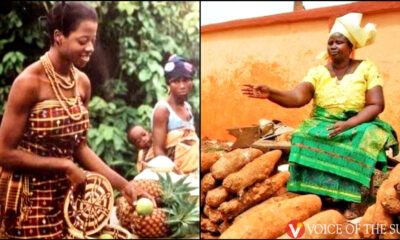
 Igbo Cultures And Traditions3 years ago
Igbo Cultures And Traditions3 years agoThe Four Igbo Market Days and Their Significance In Odinala na Omenala ÌGBÒ
-
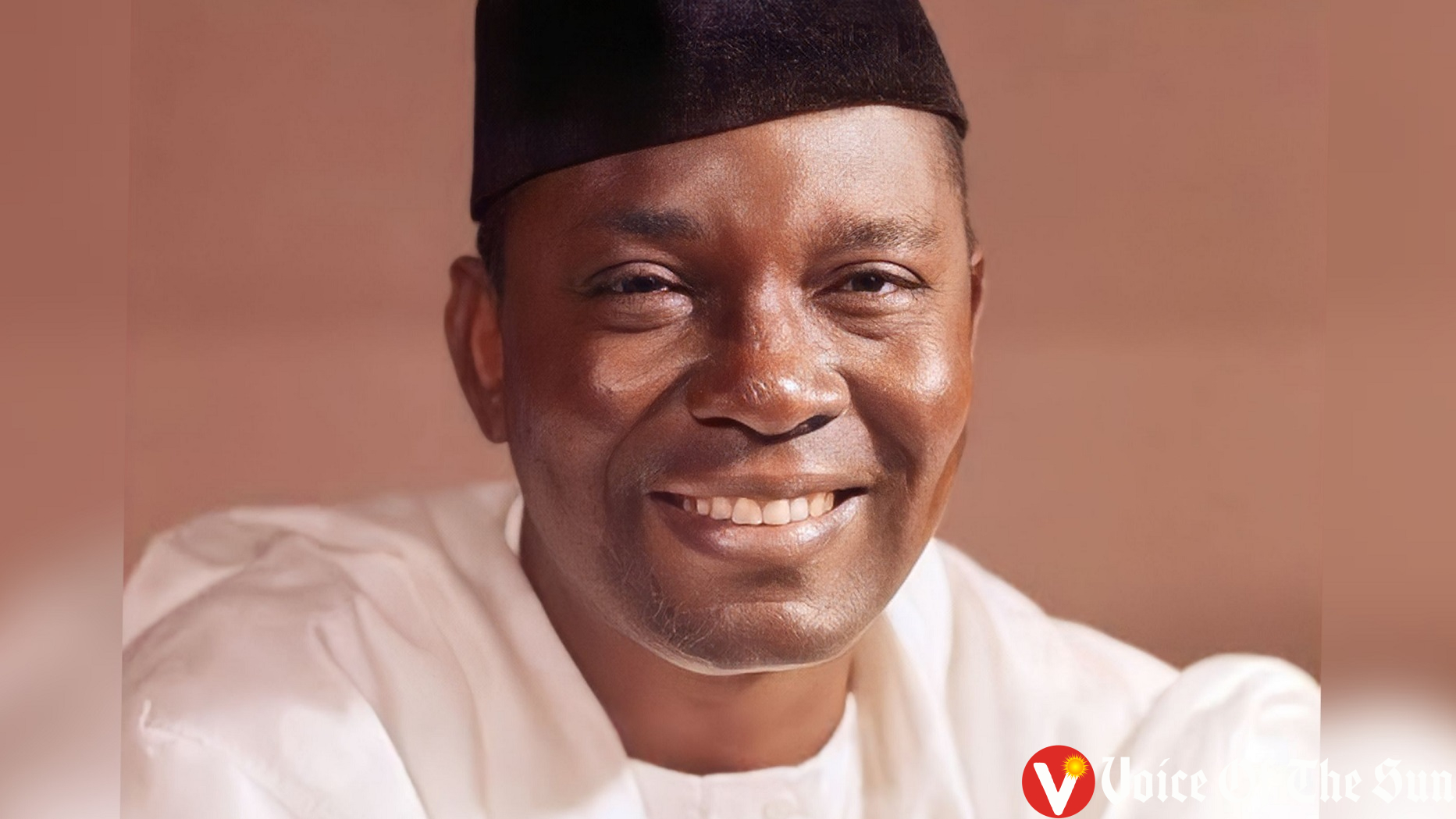
 Igbo History and Origins2 years ago
Igbo History and Origins2 years agoNnamdi Azikiwe: Legacy of a Nigerian Nationalist And Igbo Icon
-
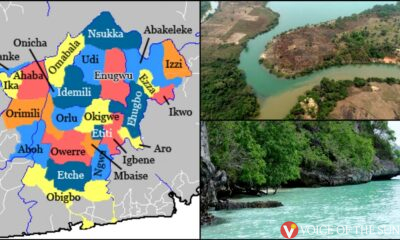
 Igbo News3 years ago
Igbo News3 years agoIgbo Land Is Not Landlocked – We Have The Deepest And Shortest Access To The Atlantic Ocean
-
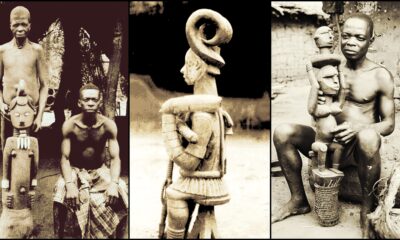
 Igbo Spirituality2 years ago
Igbo Spirituality2 years agoÌgbò Ancestors Did Not Worship Idols and Demons – A Journey Into Ịgọ Mmụọ In Odinana Ìgbò
-
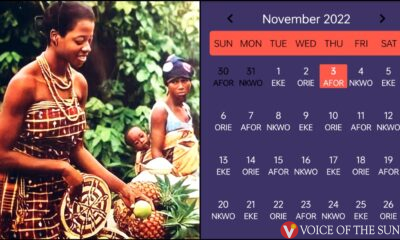
 Igbo Cultures And Traditions2 years ago
Igbo Cultures And Traditions2 years agoWhich Igbo Market Day Is Today – Get The Complete Igbo Calendar
-
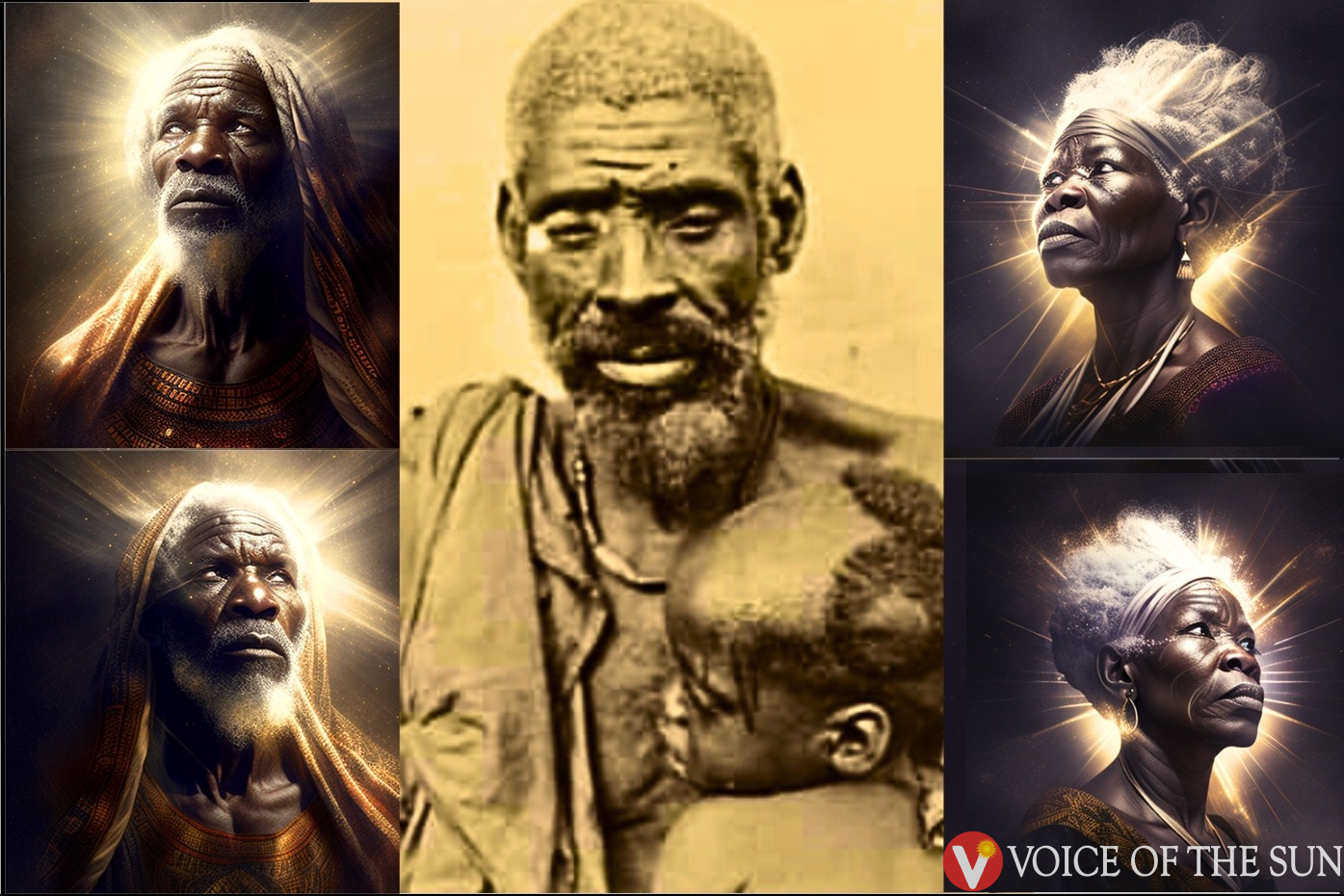
 Igbo Spirituality2 years ago
Igbo Spirituality2 years agoUnderstanding Ndị Ịchie In Igbo Cosmology: Who Are Ndi Ichie In Odinana na Omenana Ìgbò?
-
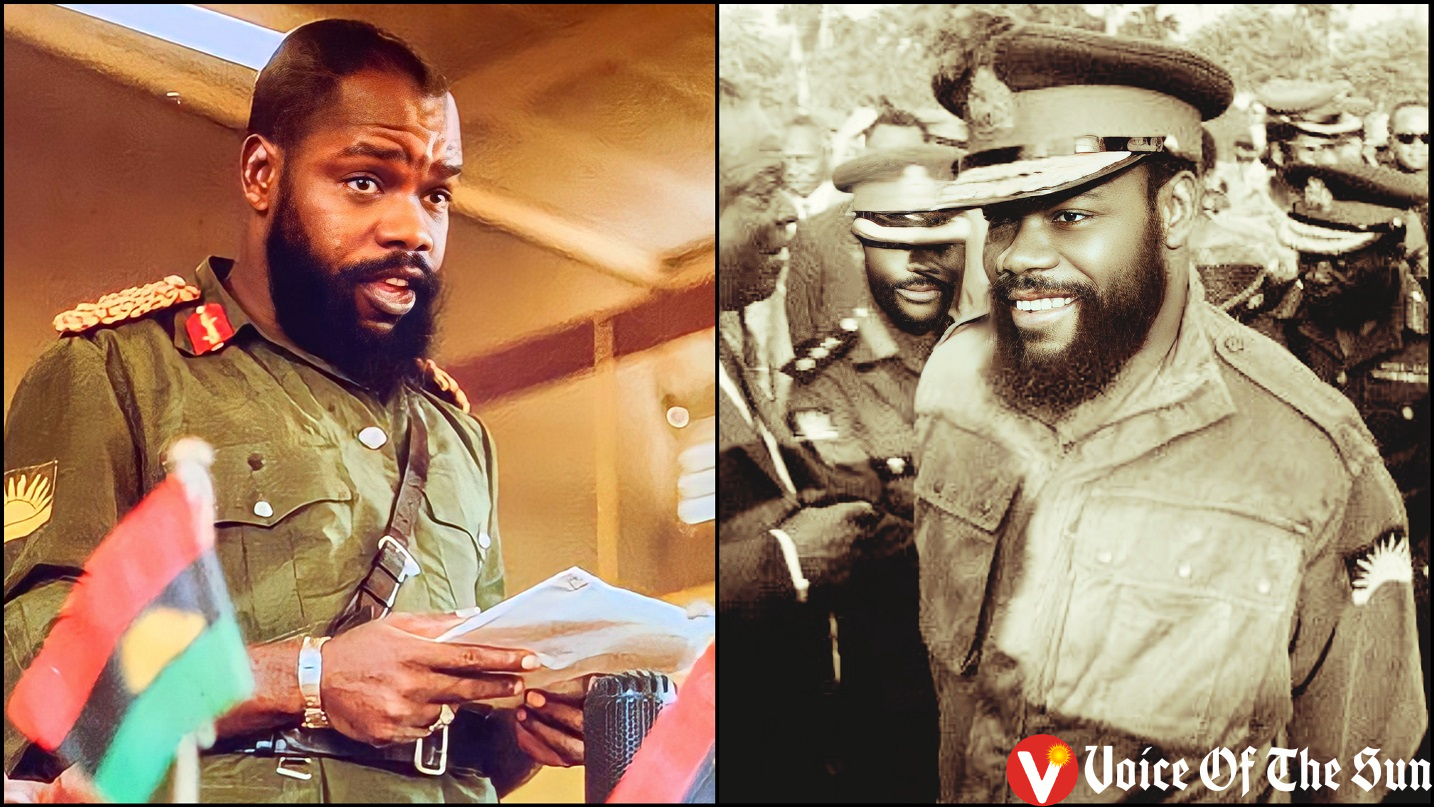
 Igbo History and Origins2 years ago
Igbo History and Origins2 years agoChukwuemeka Odumegwu Ojukwu: The Life And Legacy Of An Igbo Hero
